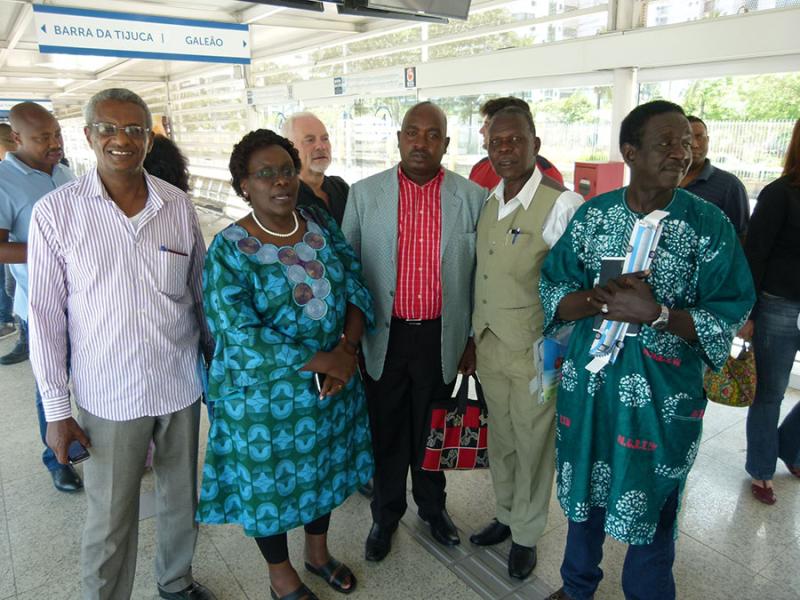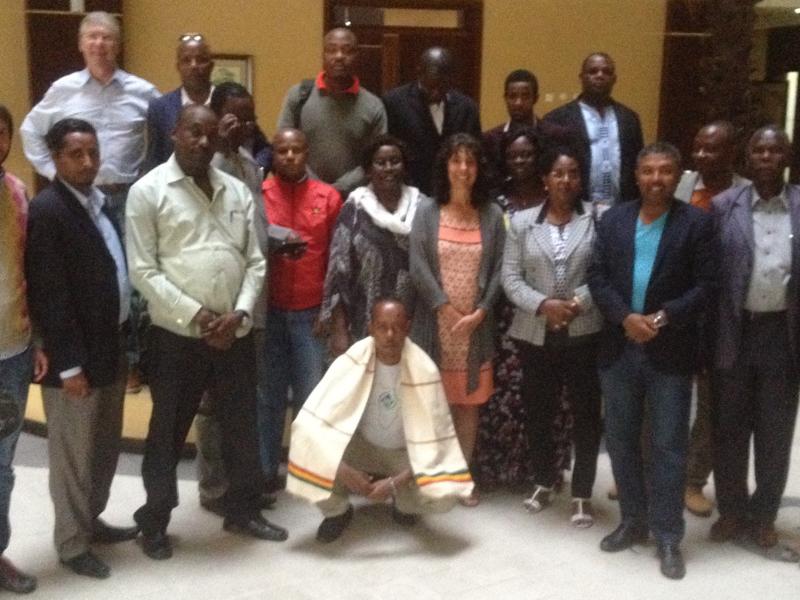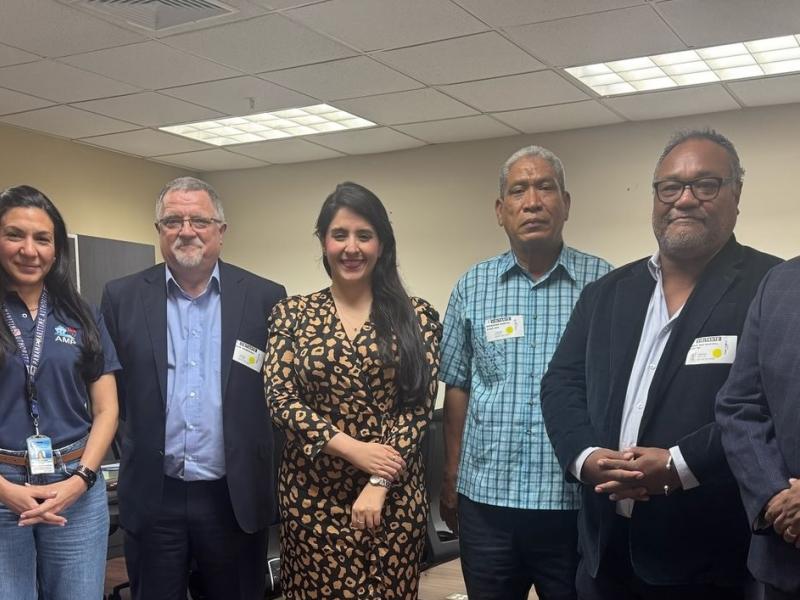Workers from ITF-affiliated transport unions in Kenya marched through Nairobi on 8 March - International Womens' Day - to present to the transport ministry a position paper on bus rapid transit (BRT) implementation in the city.
The march, organised by the Transport Workers’ Union (TAWU), the Matatu Workers’ Union (MWU) and the Public Transport Operators Union (PUTON), with backing from the ITF, called on the Kenyan government to pay attention to specific issues when planning the BRT system, such as ensuring optimal gender equality in every aspect.
It followed the ITF's launch of a ground-breaking report by the Global Labour Institute, which covers the BRT's impact on public transport workers.
The following demands were presented to the principal secretary of Kenya's Housing and Urban Development state department, Mr Charles Hinga Mwaura:
- the Nairobi Metropolitan Area Transport Authority (NAMATA) should work with the unions to tackle gender imbalance and discrimination against women workers in the BRT project, including access to sanitation facilities, wage equality and a safe workplace
- priority must be given to including workers’ voices through their trade union representatives in the BRT design and implementation process
- BRT operating companies must be compelled to give first consideration for employment to the more than 35,000 workers whose jobs are at risk from the project, through a transparent recruitment process
- a programme should be put in place to retrain the workers who are at risk of losing their jobs to the BRT project
- there should be a process to formalise and improve the matatu industry (informal, private minibus service) and integrate it with the BRT system
- the NAMATA includes in its infrastructure development plan the upgrading of link roads that meet with BRT routes
Mr Hinga came out to meet the workers when they arrived at his office and said: “The BRT comes with job opportunities for all of you, we will work with your union leaders to see Matatu workers are represented. You are the most important stakeholders.”
Dan Mihadi, general secretary of TAWU, welcomed with meeting with Mr Hinga: "We are not against BRT, our concern has always been exclusion of the workers' voice. We are glad that there has been a positive step today and we look forward to continuity in a similar manner.”
Kenya's BRT project is at an advanced stage and matatu workers - who are key stakeholders - in Kenya have been pushing for inclusion in the project's decisions and plans.
ITF Africa deputy regional secretary Anna Karume said: "The informal transport sector is a very critical component of urban transport. The unions demonstrated unity and order as they made their demands on important aspects such as gender equality, and we look forward to their inclusion in BRT implementation."







